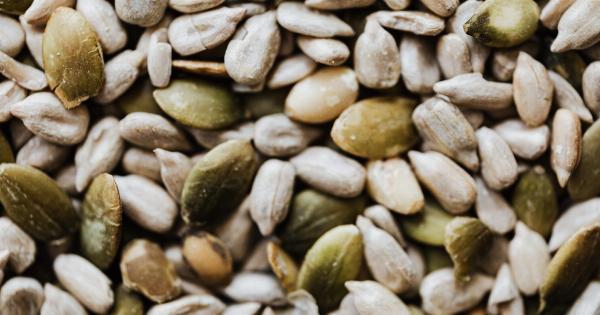Soy milk is a popular alternative to cow’s milk, especially for those with lactose intolerance or adhering to a plant-based diet. However, when it comes to feeding soy milk to baby girls, parents need to exercise caution.
Despite its potential benefits, soy milk may have adverse effects on the health and development of infant girls. In this article, we will explore the reasons why soy milk should not be given to baby girls and discuss alternative options for their optimal nutrition.
The Impact of Soy Isoflavones on Hormonal Balance
One of the primary concerns with giving soy milk to baby girls is the presence of soy isoflavones, which are plant compounds that mimic the effects of estrogen in the body.
While soy isoflavones may provide various health benefits to adults, they can interfere with the delicate hormonal balance in infants, especially girls. Excessive exposure to estrogen-like compounds during early development can potentially disrupt normal hormonal patterns and impact reproductive health in the long term.
Potential Genital Abnormalities
Research suggests that the high levels of estrogen-mimicking compounds in soy milk can lead to genital abnormalities in baby girls.
Studies have linked the consumption of soy products in early life to developmental issues such as an abnormally enlarged clitoris (clitoromegaly) or incomplete fusion of the labia. These abnormalities can have profound implications on the physical and emotional well-being of affected individuals throughout their lives.
Thyroid Function Disruption
Another concern regarding soy milk consumption in baby girls revolves around its potential impact on thyroid function. Soy contains goitrogens, substances that can interfere with the production of thyroid hormones.
Infant girls are particularly vulnerable to thyroid function disruption, as they have higher thyroid-stimulating hormone (TSH) levels compared to boys during the early stages of development. Imbalances in thyroid hormones can adversely affect growth, metabolism, and cognitive development.
Altered Development of Puberty
The influence of soy isoflavones on hormonal balance can also affect the timing and development of puberty in girls.
Research suggests that early exposure to soy products may lead to accelerated breast development, early onset of menstruation, and altered hormonal profiles during puberty. These changes may have long-term consequences for reproductive health and increase the risk of certain hormone-related conditions later in life.
Nutrient Imbalances in Soy Milk
Besides the concerns regarding hormonal disruption, soy milk may not provide an optimal balance of nutrients for baby girls.
While soy milk can be fortified with certain vitamins and minerals, it lacks essential nutrients such as calcium and vitamin D that are crucial for bone development and overall growth. Moreover, the high levels of phytic acid in soy can hinder the absorption of minerals like iron and zinc, which are vital for infant development.
Alternatives to Soy Milk for Baby Girls
Considering the potential risks associated with soy milk, it is advisable to explore alternative options for baby girls’ nutrition. Here are some alternatives to consider:.
1. Breast Milk
Breast milk is the gold standard for infant nutrition. It provides a perfect balance of nutrients, immune-boosting compounds, and essential fatty acids that contribute to optimal growth and development.
Whenever possible, breastfeeding is the best choice for baby girls.
2. Cow’s Milk or Dairy Alternatives
If breastfeeding is not an option, baby girls can be given cow’s milk or dairy alternatives specifically formulated for infants.
However, it is essential to choose fortified versions to ensure adequate intake of calcium, vitamin D, and other essential nutrients for healthy bone development.
3. Formula Feeding
In cases where breastfeeding or cow’s milk is not feasible, infant formula is a suitable alternative. Opt for formulas that are specifically designed for baby girls, taking into account their unique nutritional needs.
4. Seek Professional Advice
If parents have concerns about their baby girls’ nutrition or are unsure about the most appropriate dietary options, it is always advisable to consult a pediatrician or a registered dietitian.
These healthcare professionals can offer personalized guidance and ensure that the nutritional needs of baby girls are met.
Conclusion
While soy milk may seem like a convenient alternative, it is crucial to exercise caution when feeding it to baby girls. The potential risks associated with soy isoflavones, hormonal disruption, and nutrient imbalances outweigh the perceived benefits.
Breast milk, cow’s milk, dairy alternatives, and infant formula are safer and more suitable options to provide optimal nutrition for baby girls. As parents, it is essential to make informed choices and prioritize the long-term health and well-being of our little ones.





























